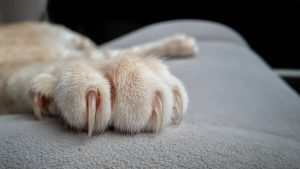Why Do Cats Purr?
Cats purr for various reasons, ranging from contentment and relaxation to pain or distress. The act of purring can serve both as a sign of comfort and as a way for cats to communicate or self-soothe in stressful situations.
Why do cats knead?
Cats knead with their paws, pressing them alternately against a soft surface, which they often do from kittenhood to adulthood. This behavior is believed to be comforting, as it’s reminiscent of the kneading motions kittens make against their mothers while nursing. As they grow, cats may knead when they’re relaxed, content, marking territory, or even signaling a desire to mate

Is it safe to give cats milk?
While kittens are nursed on their mother’s milk, many adult cats are lactose intolerant. This means they can’t break down lactose, the sugar found in milk, effectively. Giving milk to such cats can lead to stomach upset, cramps, and diarrhea. It’s generally safer to offer cat-specific milk products or avoid milk altogether.
Why do cats bring dead animals to their owners?
One theory is that cats see humans as inept kittens. In the wild, a mother cat might bring back dead prey to teach her kittens how to eat. By bringing prey to the human, a cat might be acting out this maternal instinct. Another theory is that the cat is sharing or gifting its catch, a token of appreciation or affection.

hunting maine coon cat with bird prey in mouth
Why do cats hate water?
Not all cats dislike water, but many do. This aversion might be because domestic cats’ ancestors lived in areas with few large bodies of water and had little experience with swimming. Additionally, a cat’s coat doesn’t dry quickly and can become heavy when wet. However, some domestic cats, especially certain breeds, can be more tolerant of or even enjoy water.
Why are some people allergic to some cats but not others?
People’s allergic reactions to cats are primarily due to a protein called Fel d 1. The amount of this protein varies among cat breeds and individual cats, resulting in different allergic responses in people. Some cats simply produce fewer allergens, making them less likely to trigger allergic reactions.
